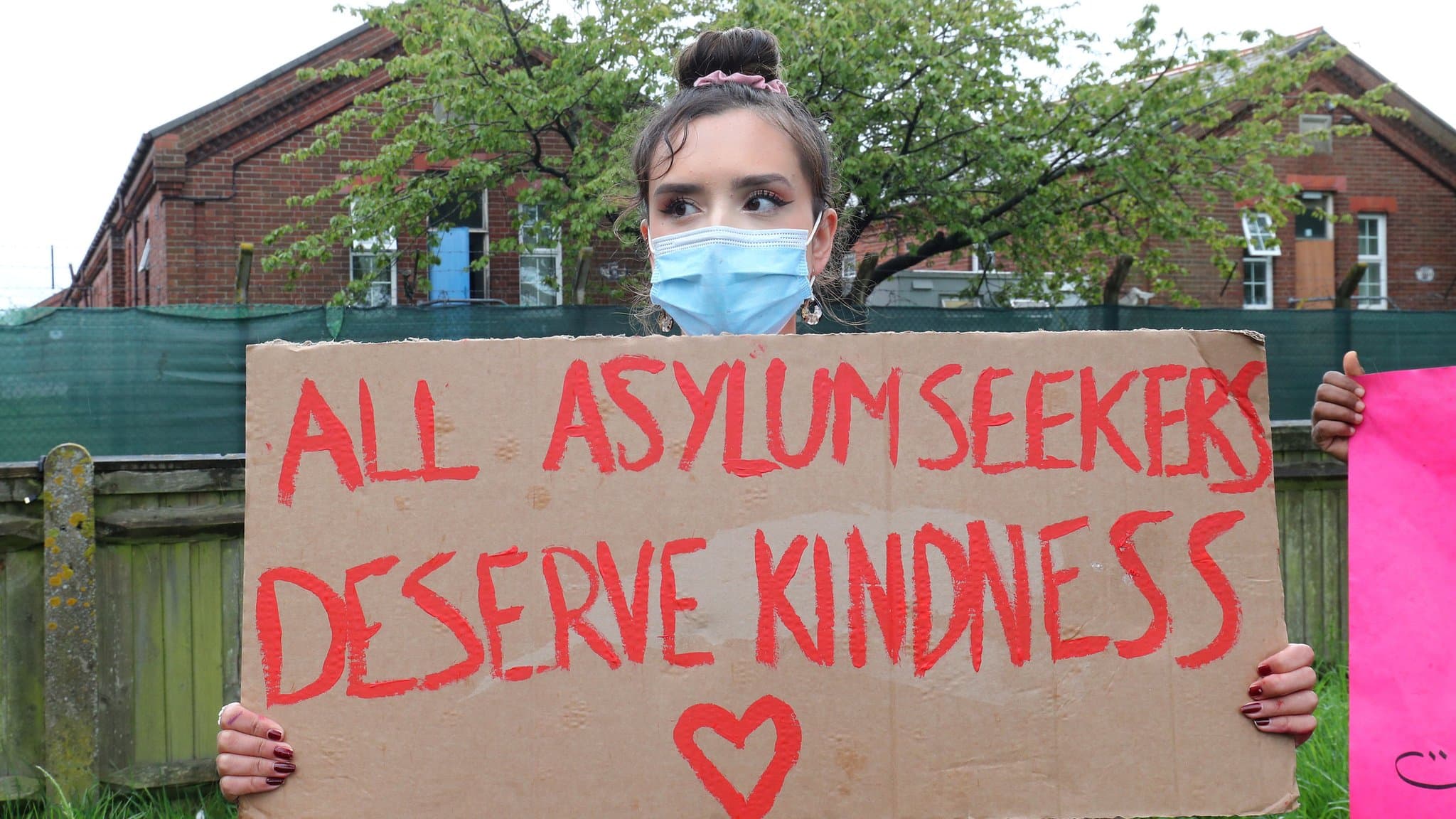We're loading the full news article for you. This includes the article content, images, author information, and related articles.
The UK government is moving asylum seekers from hotels to military barracks, a policy it admits may be more expensive but justifies as necessary to quell public discontent.

The United Kingdom's government has confirmed it will begin housing asylum seekers in military barracks, defending the move as a necessary response to public dissatisfaction with the use of hotels, even if it incurs higher costs. On Tuesday, 28 October 2025, Downing Street stated that addressing the "issue of public confidence" was worth the potential extra expense. This policy shift will initially see approximately 900 male asylum seekers relocated to Cameron Barracks in Inverness, Scotland, and Crowborough Training Camp in East Sussex, England, starting as early as next month. The government's long-term ambition is to accommodate up to 10,000 individuals in such facilities.
The move comes as the UK grapples with a spiralling asylum accommodation budget, which a parliamentary committee report on Monday, 27 October 2025, described as a "failed, chaotic and expensive" system. The projected costs for asylum accommodation contracts between 2019 and 2029 have surged from £4.5 billion to £15.3 billion. As of June 2025, around 32,000 asylum seekers were housed in hotels, a significant number that the government is under pressure to reduce. Prime Minister Keir Starmer has expressed his intent to close all asylum hotels, blaming the previous government for creating a "huge mess" in the asylum system.
Despite the government's rationale, the policy has faced fierce criticism from refugee organizations, human rights groups, and local politicians. Critics argue the plan is "fanciful," "too expensive," and logistically challenging. A National Audit Office report from last year found that similar large-scale sites could indeed cost more than hotels. Defence Minister Luke Pollard acknowledged that using military bases might be more costly but argued it was justified to reflect the "public mood".
Humanitarian groups have raised significant concerns about the well-being of asylum seekers. Steve Smith, CEO of Care4Calais, warned that opening more camps could "retraumatise more people who have already survived horrors such as war and torture." Médecins Sans Frontières described the policy as "pointlessly cruel." There are also fears that housing asylum seekers in isolated, military-style environments could restrict their access to essential services and negatively impact their mental health, a concern stemming from past criticisms of conditions at sites like Napier Barracks.
While there is no direct evidence that asylum seekers from Kenya or the wider East African region will be specifically housed in these barracks, the policy shift reflects a broader tightening of the UK's immigration and asylum framework that affects all applicants. According to 2025 Home Office statistics, 21% of asylum applicants in the UK were from African nations, highlighting the significant number of people from the continent navigating the system. However, a specific breakdown of asylum applications by East African nationalities for 2024 or 2025 is not available in recent public reports. FURTHER INVESTIGATION REQUIRED.
The UK's focus on contentious domestic solutions comes after its controversial plan to relocate asylum seekers to Rwanda, an East African Community member, was officially cancelled by the new government after being deemed unlawful by the UK Supreme Court. That policy, and its failure, underscored the challenges and complexities of the UK's external migration strategies involving Africa. Furthermore, recent changes tightening UK visa rules for students and care workers—a sector where a 2021 bilateral agreement had created opportunities for Kenyan health professionals—illustrate a more restrictive environment for migrants overall. The Kenyan High Commission in London has not issued a public statement on the new barracks policy, but it continues to advise its citizens in the UK to remain vigilant amid social tensions.
The plan has also sparked local opposition in the UK. The Highland Council in Scotland has expressed concern over the lack of consultation and the potential impact on community cohesion in Inverness, a relatively small city. Some local Members of Parliament have also voiced their disapproval, with one calling the choice of a city-centre barracks "odd" and another deeming the plans "wholly inappropriate." This domestic opposition, combined with the high costs and humanitarian warnings, casts doubt on the long-term viability and ethical standing of the policy as the UK continues to struggle with reforming its asylum system, which saw a record 111,084 people claim asylum in the year ending June 2025.
Keep the conversation in one place—threads here stay linked to the story and in the forums.
Sign in to start a discussion
Start a conversation about this story and keep it linked here.
Other hot threads
E-sports and Gaming Community in Kenya
Active 9 months ago
The Role of Technology in Modern Agriculture (AgriTech)
Active 9 months ago
Popular Recreational Activities Across Counties
Active 9 months ago
Investing in Youth Sports Development Programs
Active 9 months ago